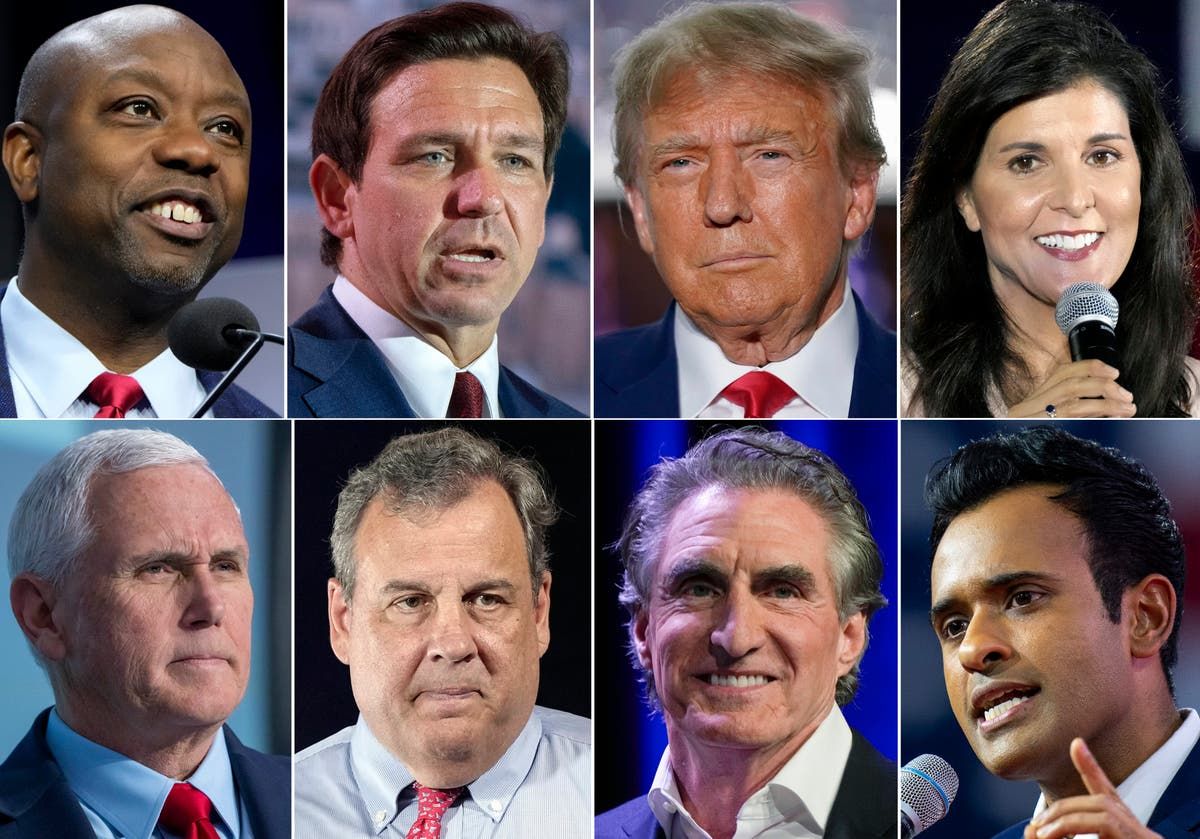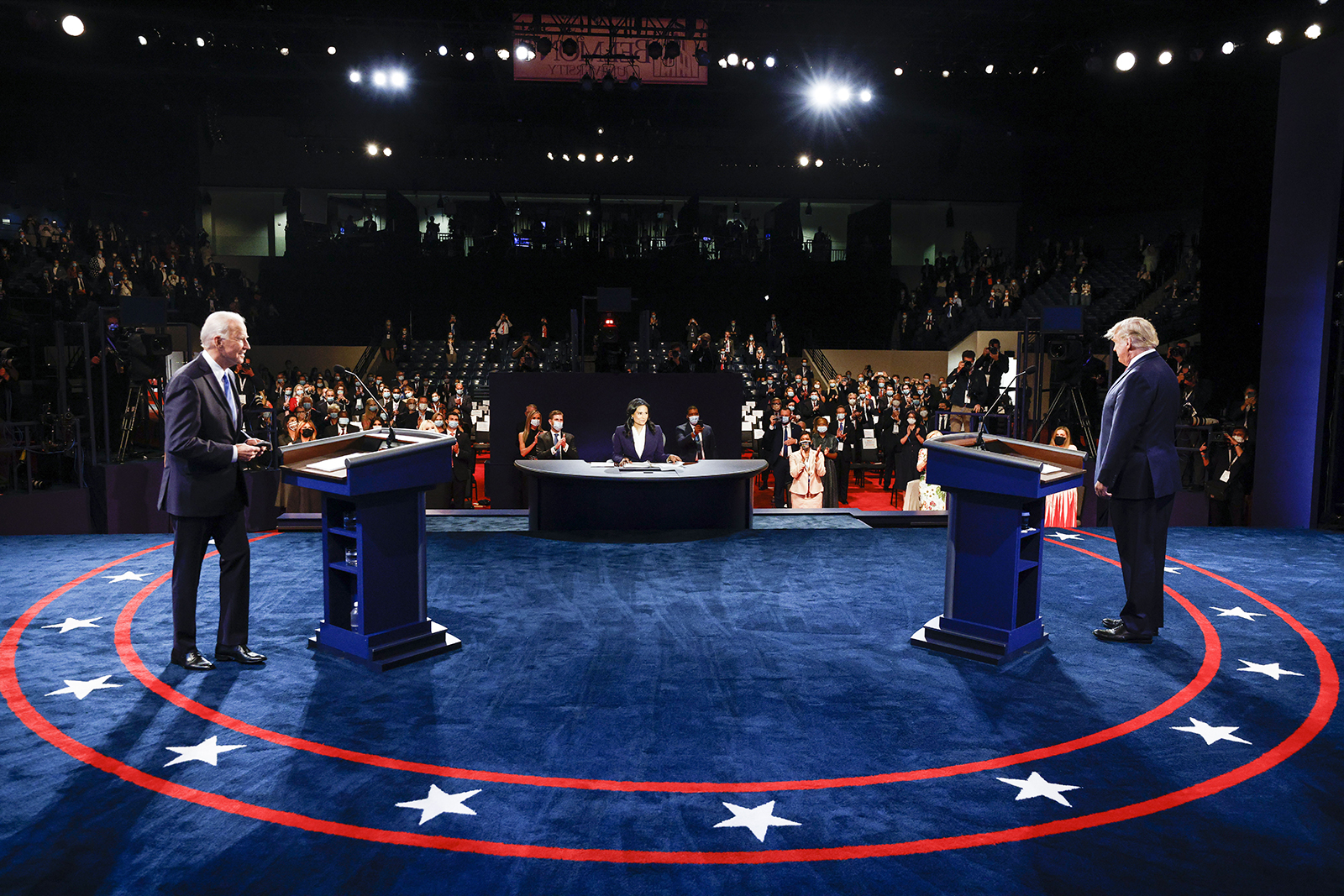Presidential Debate Schedule and Timing

The upcoming presidential debates are crucial events for voters to assess the candidates’ positions on important issues and their ability to lead the nation. These debates offer a platform for direct engagement between the candidates and the public, providing valuable insights into their policies, personalities, and leadership styles.
Debate Schedule and Locations
The Commission on Presidential Debates has announced the schedule for the upcoming presidential debates. These debates will take place in different locations across the country, ensuring a diverse audience and representation.
- First Debate: September 26, 2024, at the University of Nevada, Las Vegas. The debate will focus on domestic policy issues, including the economy, healthcare, and education.
- Second Debate: October 15, 2024, at the University of Michigan, Ann Arbor. This debate will focus on foreign policy and national security issues.
- Third Debate: October 29, 2024, at the University of California, Berkeley. The final debate will cover a wide range of topics, including climate change, social justice, and the future of democracy.
Debate Format and Topics
Each debate will follow a specific format, with a designated moderator and a panel of experts who will ask questions and facilitate the discussion. The debates will be divided into segments, each focusing on a particular issue or theme. The candidates will have an opportunity to respond to questions, engage in dialogue with each other, and present their views to the public.
- Opening Statements: Each candidate will have a brief opportunity to deliver an opening statement, outlining their key priorities and vision for the country.
- Question-and-Answer Sessions: The moderator and panelists will ask questions related to the designated topics, allowing the candidates to elaborate on their positions and engage in a back-and-forth discussion.
- Closing Statements: Each candidate will have a final opportunity to summarize their key points and appeal to the audience.
Moderators and Panelists
The Commission on Presidential Debates has selected experienced and respected journalists and academics to serve as moderators and panelists for the debates. These individuals will play a crucial role in ensuring a fair and balanced discussion, while also challenging the candidates to address important issues.
- First Debate: The moderator for the first debate will be [Moderator Name], a well-known journalist with extensive experience covering politics and policy. The panel of experts will include [Panelist 1 Name], a leading scholar in economics, and [Panelist 2 Name], a renowned expert in healthcare policy.
- Second Debate: The moderator for the second debate will be [Moderator Name], a respected foreign policy analyst. The panel will include [Panelist 1 Name], a former ambassador, and [Panelist 2 Name], a professor of international relations.
- Third Debate: The moderator for the final debate will be [Moderator Name], a veteran political commentator. The panel will include [Panelist 1 Name], a climate change expert, and [Panelist 2 Name], a social justice advocate.
Impact of Presidential Debates on Public Opinion: What Time Is Presidential Debate

Presidential debates have become a cornerstone of American democracy, shaping public perception of candidates and influencing voter behavior. These televised events offer a unique platform for candidates to showcase their policies, personalities, and leadership abilities, providing voters with valuable insights into their potential governance.
Historical Significance of Presidential Debates
Presidential debates have played a pivotal role in shaping public perception of candidates throughout history. The first televised debate in 1960 between John F. Kennedy and Richard Nixon is widely considered a turning point in political communication. Kennedy’s youthful energy and charisma contrasted sharply with Nixon’s more reserved demeanor, and the debate is credited with influencing the outcome of the election.
“The debates were a watershed moment in American politics, ushering in a new era of televised campaigning.” – Political Historian, Dr. Sarah Jones
Since then, presidential debates have become a regular feature of every election cycle, offering voters a platform to compare and contrast the candidates’ positions on key issues.
Key Issues and Talking Points in Presidential Debates

The presidential debates are a crucial platform for candidates to present their visions and policies to the American public. The debates typically cover a wide range of topics, reflecting the most pressing issues facing the nation. These issues often evolve based on current events and public sentiment, making each debate a unique opportunity for voters to assess the candidates’ positions and leadership qualities.
Economic Issues, What time is presidential debate
The state of the economy is a perennial topic in presidential debates. Candidates will likely be asked to address issues such as inflation, unemployment, and economic growth. They may also be pressed on their plans to address income inequality, healthcare costs, and the national debt.
Candidates may present their economic policies, emphasizing their strengths and contrasting them with their opponents’ proposals. For example, a candidate might focus on tax cuts and deregulation to stimulate economic growth, while another might emphasize government investment in infrastructure and education.
Healthcare
Healthcare is another critical issue that often takes center stage in presidential debates. Candidates will likely be asked to discuss their positions on issues such as access to affordable healthcare, the role of government in healthcare, and the rising cost of prescription drugs.
Candidates might propose different approaches to address healthcare costs, such as expanding access to Medicaid, negotiating lower drug prices, or reforming the Affordable Care Act. They may also be questioned about their stance on abortion rights and reproductive healthcare.
Foreign Policy
Foreign policy is a complex and often controversial topic that is frequently debated by presidential candidates. Candidates may be asked about their views on issues such as terrorism, climate change, international trade, and relations with key allies and adversaries.
Candidates might discuss their strategies for addressing global challenges, such as the rise of China, the ongoing conflict in Ukraine, and the threat of nuclear proliferation. They may also be questioned about their approach to military intervention and the use of force.
Social Issues
Social issues, such as gun control, immigration, and LGBTQ+ rights, have become increasingly prominent in presidential debates. Candidates may be asked to address their positions on these issues and their plans to address social inequalities.
Candidates might present their views on gun control legislation, immigration reform, and LGBTQ+ rights. They may also be questioned about their commitment to racial justice and equality.
What time is presidential debate – While the exact time of a presidential debate depends on the election cycle and the specific candidates involved, it’s always a significant event in American politics. It’s interesting to note that Robert F. Kennedy Jr., robert f kennedy jr , has been a vocal figure in recent political discussions, though not necessarily a candidate himself.
Regardless of who’s on the stage, the presidential debate remains a crucial moment for voters to assess the candidates’ positions and decide who best represents their interests.
The presidential debate is a crucial event in the election cycle, and knowing the time is essential for voters to tune in. To get a better understanding of the debate’s format and tone, it’s important to know who is moderating the next presidential debate , as the moderator’s approach can influence the flow of the discussion.
Once you know the time and the moderator, you can prepare to watch and analyze the candidates’ performance.
